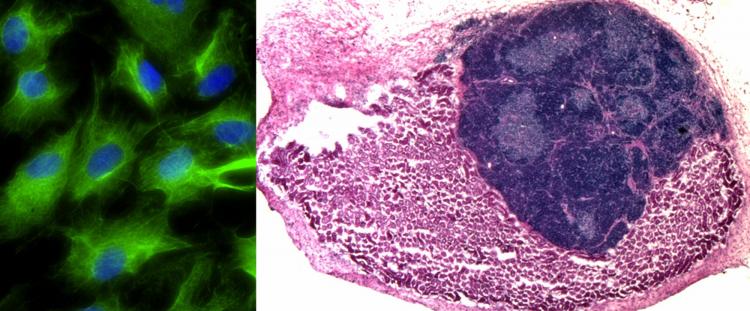MRC Centre for Regenerative Medicine

Scientists have for the first time grown a complex, fully functional organ from scratch in a living animal by transplanting cells that were originally created in a laboratory. The advance could in future aid the development of ‘lab-grown’ replacement organs.
Researchers from the MRC Centre for Regenerative Medicine, at the University of Edinburgh, took cells called fibroblasts from a mouse embryo and converted them directly into a completely unrelated type of cell — specialised thymus cells — using a technique called ‘reprogramming’. When mixed with other thymus cell types and transplanted into mice, these cells formed a replacement organ that had the same structure, complexity and function as a healthy native adult thymus. The reprogrammed cells were also capable of producing T cells — a type of white blood cell important for fighting infection — in the lab.